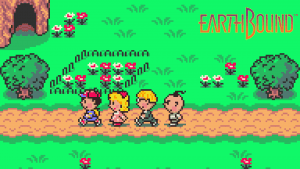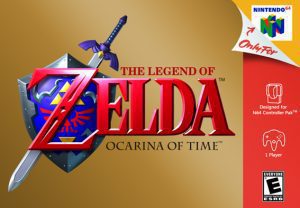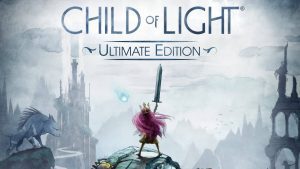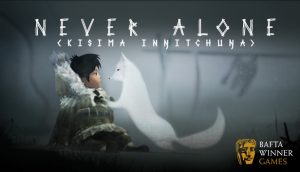For our ongoing series of articles depicting the best video games, our attention this time turns to games with a focus on coming of age. From classic fantasy adventures to horrific depressing narratives, there’s a good choice to whet your appetite. Of course, if we’ve missed any of your favorites, feel free to comment below and we’ll get them added on!
The Last of Us: Left Behind
Living in a zombie-infested world would be heartbreaking and difficult. With danger surrounding you at every turn, the odds of surviving the next day would be less than 20%. With that thought, imagine enduring this trauma as a child, and you may find yourselves in Ellie’s predicament in The Last of Us. In the first entry, players could control Ellie’s character sometimes, but the story leaned more toward Joel’s hardships. However, its Left Behind DLC allowed players to immerse themselves in the world through Ellie’s eyes best. The coming-of-age trope shines through in Left Behind’s combat, cinematics, and varied activities involving Ellie and her friend Riley. The Last of Us: Left Behind DLC is set before Ellie’s inevitable encounter with Joel. Players will see how Ellie’s naive, child-like demeanour spirals down a path of hardness and maturity later on. The game establishes Ellie’s teenage behavior early with her ignorance of firearms and participation in delinquent activity with Riley. In essence, it portrays her as a happy-go-lucky girl whose just looking to have a fun time. Unfortunately, Ellie and Riley go their separate ways for a while, and this instance brings about a change of heart in Ellie’s personality. The gameplay promotes this idea in the player’s mind as they must command Ellie to make adult-like actions concerning strategy and instinct. This is apparent whenever she encounters zombies or enemies of any kind. While the DLC’s gameplay doesn’t innovate on the first game’s mechanics, it does tell a different narrative concerning Ellie’s growth. You can read our thoughts on The Last of Us II in our video game review here!
Earthbound
If it wasn’t for Earthbound, games like Undertale or Deltarune wouldn’t exist. While it wasn’t a console selling title on the Super Nintendo because of poor marketing, Earthbound found its audience with its compelling coming-of-age narrative, colorful characters, and quirky humor. Earthbound has players take control of a boy named Ness, who traverses his homeworld of Eagleland with his companions in search of the eight melodies. Ness needs these melodies to foil Giygas’s plans to shower Eagleland in darkness. With his supernatural abilities and a distinct squad of bizarre companions, Ness aims to save his world. The circumstances Ness and his friends endure are bizarre. One moment Ness must fight an evil robot and then travel to a town filled with deranged cultists that enslave one of his companions. The players will find themselves taking part in adult-like activities like paying debts, checking their financial account balance, and calling a retail service that’ll store their items for a fee. With its absurdity comes hilarity, and Earthbound is no stranger to comedy. While many of the jokes will land for a younger audience, Earthbound has many adult-oriented jokes like a zombie insurance gag that’ll leave older folks chuckling. Earthbound truly captures the experience not many children encounter at Ness’s age, and it’s that component that makes it a well-crafted game.
Pokémon Red & Blue
Despite what some may say, the Pokémon franchise targets everyone regardless of age. However, the titles may leave a grand impact on adolescents. Pokémon Red and Blue were the first games to achieve this feat. The basic premise of Pokémon is to become the very best Pokémon trainer like no one ever was. You must defeat the region’s eight gym leaders, conquer its elite four, and defeat the champion. However, you’ll encounter well-skilled trainers, a competitive rival, and an evil organization aiming to cause chaos. Keep in mind that you take control of a 10-13-year-old child who must accomplish all these feats. Many of these gym leaders are adults with much experience, making your victory over them feel like a true accomplishment. This indicates that the player is not only growing in skill, but their intellect is also rising. The player’s character also serves as a vessel for the side characters: regarding character development and growth. In Pokémon Red & Blue, for instance, your rival is a snobby trainer in the beginning because they argue they’re the best. However, after you defeat your rival during the Pokémon League, their personality undergoes a form of change for the better. Essentially, your character helps persuade people to view things in a better light since their voiceless. Meanwhile, players must imagine their characters maturing along with the side characters. Looking back at everything that’s led up to the game’s conclusion, players will see how Pokémon’s storytelling aligns with a coming-of-age tale.
The Legend of Zelda: Ocarina of Time
The Legend of Zelda franchise is one of Nintendo’s most beloved properties. While it does stinker entries, many of the games receive much praise. The well-beloved entries contain well-written stories, memorable characters, and a thrilling sense of exploration. The Legend of Zelda: Ocarina of Time is one of them. This game isn’t just one of the best titles in the franchise, but it also tells a classic coming-of-age tale about warlocks, princesses, and growing up. Ocarina of Time follows Link as he leaves his beloved home in Kokiri Forest to save the land of Hyrule from the evil wizard, Ganondorf. Link must defeat supernatural entities, explore dangerous dungeons, and collect the legendary Master Sword to accomplish this goal. Link isn’t a chatty protagonist as he serves as the player’s eyes to the world. Although Link suffers from this setback, he shows signs of maturation near the game’s second half, where he grows up into an adult. Whether as an adult or child, Link takes on many responsibilities in the game. Some tasks range from gathering chickens for farmers to fighting freakish one-eyed monsters to restore peace. Responsibility and adventure shine through in this title. On many occasions, players must collect a certain amount of rupees (the game’s currency) and spend it on powerful weapons that’ll aid them in their journey. Link must become trustworthy to gain access to certain areas to test his worthiness. These are only a select few of the responsibilities and tasks Link endures. Based on these alone, players will find Link’s growth commendable.
Oxenfree
Many indie games want to “wow” audiences with colorful visuals, intriguing gameplay, and quality storytelling. There are some indie games like Oxenfree where their goal is for the player to craft their destiny, though. Players will find a piece of themselves in Alex since they’re the mastermind behind her actions. Oxenfree follows Alex and her new stepbrother Jonas as they attend a party on an old militant island. While all seems well, she unknowingly causes a ghostly rift. This is all because Alex wanted to listen to radio broadcasts inside one of the island’s mysterious caves. To add to the craziness, Alex and her friends find themselves trapped in a dangerous game with a bizarre being with unthinkable intent. Oxenfree’s gameplay is simple. Players only need to walk around and talk to individuals to gain new information. The information collected affects Alex’s relationships with her friends and stepbrother detrimentally. This means players can expect to replay the game to access its different endgame scenarios. While this infers that players may not witness Alex’s destined growth since the storyline’s not kinetic, in a way, the title is helping the player grow more as a person. It isn’t to say Alex doesn’t grow on her own, as there are scenes she does. However, most of her growth or decline depends on the player’s choices than Alex’s. Otherwise, fans can expect Alex’s friends and stepbrother to develop for the better regardless of their decisions.
Dragon Quest XI: Echoes of an Elusive Age
Dragon Quest is a well-beloved franchise to retro and Japanese fans alike. While deemed the grandfather of RPGs, Dragon Quest started picking up a following because of worldwide love for its latest installment. This is Dragon Quest XI: Echoes of an Elusive Age. A young man learns the secrets of his past as he explores Erdrea in the 11th entry in the Dragon Quest franchise. King Carnelian does not welcome him with open arms when he visits. King Carnelian commands his army to hunt the man after calling him “the Darkspawn.” To clear his name, the protagonist assembles a group of wholesome travelers. Unbeknownst to them, several powerful entities await them. The Dragon Quest franchise is known for its dark storytelling, and the 11th game follows suit. The game tackles themes regarding reconciliation and forgiveness. However, it also addresses darker topics regarding death, exploitation, and heartbreak. While the protagonist is silent, he also develops alongside the side characters who join him. His development truly shines in his remarkable intelligence. One scene that highlights this occurs when the protagonist time travels to change a critical event that led to a friend’s death. The protagonist also makes difficult choices that involve erasing a version of reality to make room for a new one.
Night In The Woods
It’s a no-brainer that independence and freedom are two concepts that many teenagers desire most. College is one outlet that fulfils this dream. College allows them to seek out their dream careers, live by themselves, and meet new companions. While college can be a teenager’s sanctuary, some can find the stress that coincides with this to feel more daunting. Night in the Woods is an indie game that follows college dropout, Mae Borowski. She returns to her home in Possum Springs to reclaim her former lifestyle. As time passes, Mae notices many things have changed regarding friends and the town’s mood, and it is her task to learn and adapt to it all. Night in the Woods tells a story that feels like an interactive drama comic with a side of finding one’s life purpose. The game encourages players to discuss matters with Mae’s former friends and record how she responds to what they share. The game also dives into sexuality, tragedy, and mental health. The gameplay and antics Mae gets involved in also highlight her issue of finding a middle ground between childhood and adulthood. Essentially, the players must help Mae find her life’s purpose and change her ways to reach said goal.
Brothers: A Tale of Two Sons
Whenever a family member is in peril, relatives often come together to conjure a resolution to their issue. In Brothers – A Tale of Two Sons, two brothers embark on a journey together filled with pain and acceptance. Their goal is to find a cure for their father’s illness. However, one of the brothers is notoriously weaker than the other, causing more areas of concern. With that in mind, this game’s an emotional roller coaster that leans toward visual storytelling than the norm. For instance, the characters speak a foreign language, and the game doesn’t offer subtitles. The decision was to encourage players to gaze upon the characters’ expressions and reactions to their world. While the world appears pleasant, players reach areas filled with bloody rivers, dangerous water life, and bleak prisons. This scenery helps players identify how unfamiliar the brothers are with the world around them, highlighting their innocence. The puzzles and side quests aren’t necessary to complete the game, but those that tackle them will feel more immersed in the world. It also elevates the brother’s understanding of the world, which is great in and of itself.
Child of Light
Sleep is essential to every living organism, but it can also lead to many unexpected shenanigans. For the magical land of Lemuria, they end up receiving an organism with the intent of returning what’s rightfully theirs in the game Child of Light. Child of Light is an RPG that follows the daughter of an Austrian noble named Aurora, who wakes up in Lemuria. After hearing about the Queen of the Night’s thievery of the land’s light sources, Aurora and her new companions journey out to stop the Queen and bring peace to Lemuria. It’s a game with a remarkable coming-of-age tale and beautiful art style. Aurora’s mission is all about securing lights, but she only chooses to claim the pure ones after noticing there are dark ones not worth reclaiming. Aurora also matures during the game regarding the comrades she recruits. While she enjoys their company, she knows that they won’t be with her forever. To make matters worse, Aurora persuades them to join her cause despite her new friends wanting nothing to do with saving Lemuria. It is until they travel with Aurora and see what’s happening before their eyes that their views slightly shift. Unfortunately, it’s not for long.
Never Alone
Many games reference real-world source material as inspiration for designing their game’s setting, characters and lore. While the world of Never Alone feels magical, it’s one of the few games that explains the knowledge and traditions of its inspirational source. Never Alone is an emotional puzzle platformer title that draws upon the traditional history surrounding the Alaskan Native people of Iñupiat. The story follows Nuna and his pet fox journeying through many dark and snowy areas to find the eternal blizzard. This eternal blizzard plans to threaten all walks of life, which is what drives Nuna and his fox’s adventure to stop it. The game’s emotional narrative, alongside the brief knowledge drops from Iñupiat Alaskan Natives, allows this game to stand out from most coming-of-age centric games. Upon finding an owl on the map, players are shown a short interview clip from a real-life Iñupiat Alaskan Native. These interviews share details about the Iñupiat culture and people to help immerse players into Never Alone’s world. Nuna’s character also experiences some morsel of growth from a child to youth with excellent survival prowess. Nuna also meets a few legendary beings from the Iñupiat mythos, who sharpen her and the player’s knowledge of Iñupiat folklore. She also takes on various quests for people to show her excellence in responsibility. What do you think of our picks? Do you agree? Are there any notable omissions? Let us know in the comments below!
Feel Free To Check Out More Video Game Recommendations Here!









